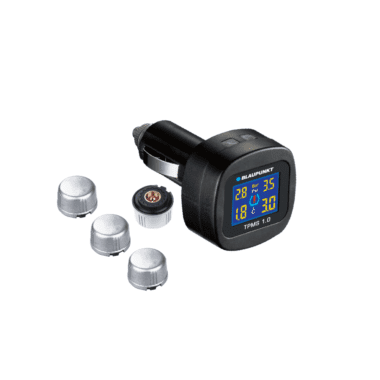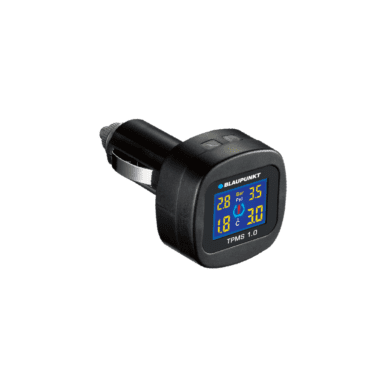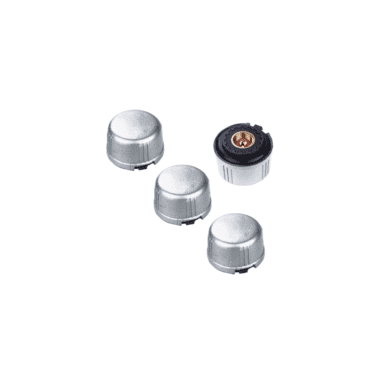
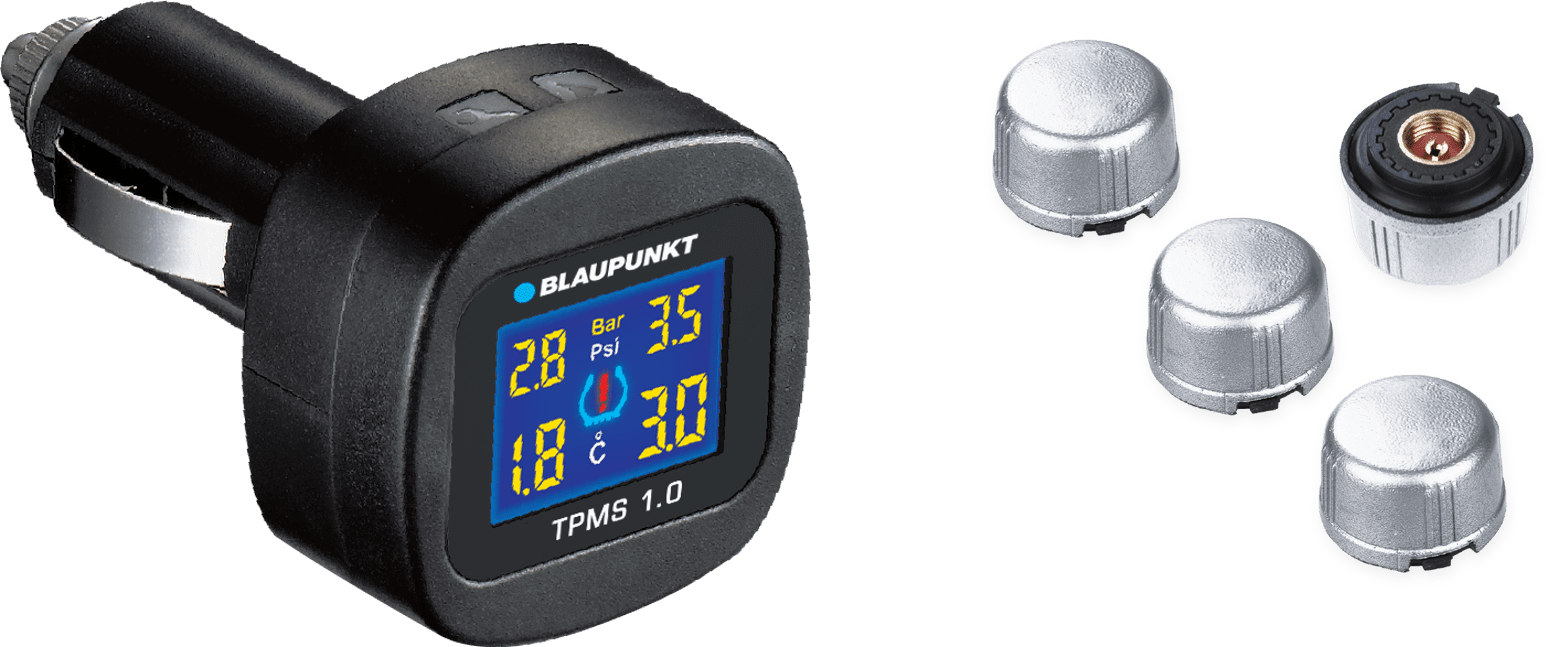
Real-Time Tire Pressure Monitoring System
Tire pressure monitoring system (TPMS) is one of the most used and essential road safety accessories for vehicles to experience the benefit of longer mileage and safer journey. The TPMS works by monitoring each tire’s pressure and temperature at all times, and alerting the driver when the tire is over inflated or deflated.
Tire Pressure Monitoring System (TPMS) and Tire Inflator (TIF) goes hand-hand for tire maintenance.
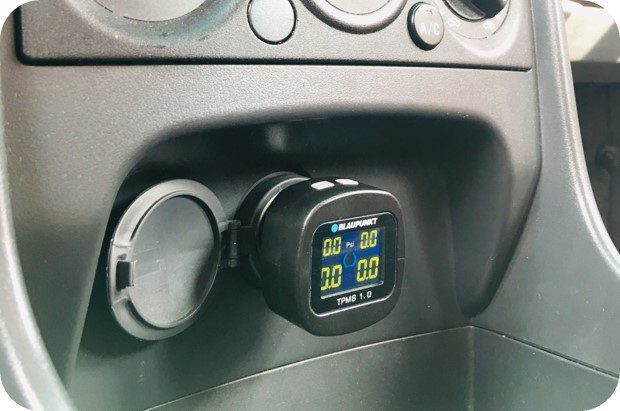
Display Structure / Design
The LCD display screen of TPMS 1.0 comprises several info features that enables you to acknowledge the real-time reading of the car tires.
-
Temperature
reading for each tire displayed in ºC.
-
Pressure
reading for each tire displayed in Bar or Psi (has convertible unit) function.
-
Low sensor batteries
for each tire will be notified on the display screen with a visual alarm indicated as ‘Lo’.
-
Low display battery
of the device will be notified on the display screen with a visual alarm and an audio indicated as ‘beep’ sound.
-
Air leakage warning
will be notified on the display screen with visual alarm and audio alarm indicated as ‘beep’ sound.
-
High temperature / pressure warning
will be notified on the display screen as visual alarm and audio alarm indicated as ‘beep’ sound.
-
Sensor failure warning
of a target sensor will be notified on the display screen as a visual alarm indicated as ‘Er’.

Synchronous Data, Sound and Visual Alert
TPMS 1.0 screen display gets activated when the device is powered through car ignition. The tire sensor will begin transmitting data to display when the vehicle moves beyond 20km/h. The screen display will automatically turn off after 60 seconds.

Anti-lock & Anti-theft Tire Sensors
Four sensors will be provided in the packaging, along with five anti-theft nuts to secure and tighten the sensors during the installation process. The anti-theft nuts prevent the tire sensors from being stolen and tampered with. The sensors have replaceable batteries (CR1632).
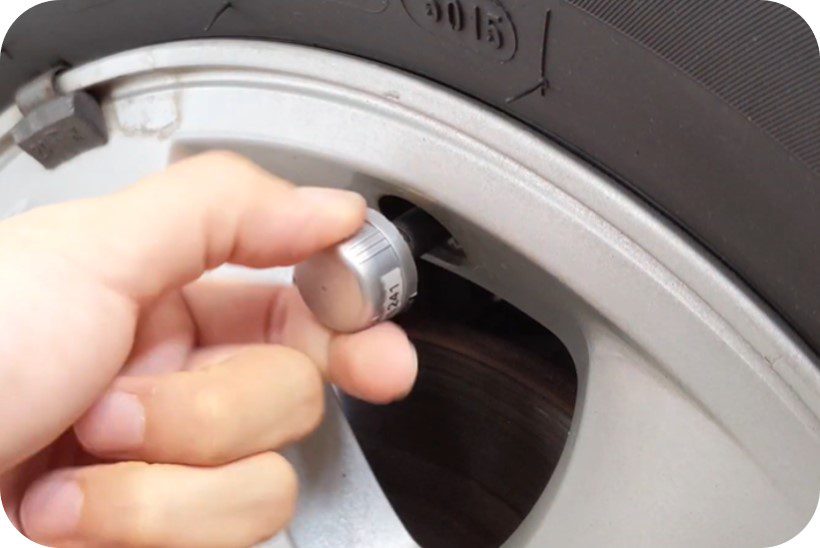
Anti-lock & Anti-theft Tire Sensors
Four sensors will be provided in the packaging, along with five anti-theft nuts to secure and tighten the sensors during the installation process. The anti-theft nuts prevent the tire sensors from being stolen and tampered with. The sensors have replaceable batteries (CR1632).

Easy Installation
The TPMS 1.0 and sensor installation is very easy that anyone can do it, with the installation user guide provided in the packaging.
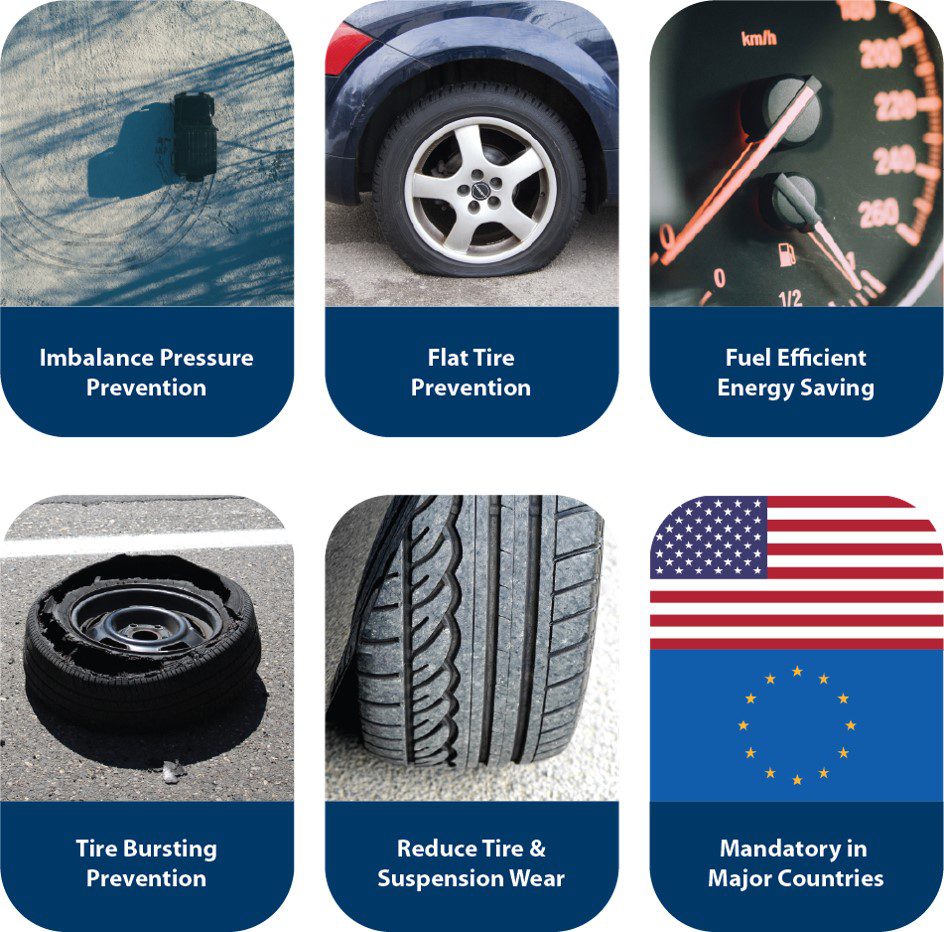
Here’s Why You Should Have TPMS Installed
Prevent Imbalance Tire Pressure
Imbalanced pressure in car tires can cause pulling brakes and result to faulty tires. TPMS helps drivers to maintain proper tire pressure and improve tire lifespan.
Prevent Flat Tire
Exposure to warmer environment and sunlight can cause tire leaks and result to shorter lifespan. TPMS usage will help drivers be aware of abnormal tire pressure to avoid flat tires by alerting the drivers when the tire pressure is 25% below safety level.
Reduce Tire Wear
underinflated or overinflated tires can cause tire thread to wear easily. TPMS enables the driver to keep the optimal pressure in tires.
Prevent Tire Bursting
1 out of 4 cars have at least one underinflated tire and this leads to faulty tire that results to tire burst. TPMS ensures the driver to maintain optimal tire pressure at all time.
Mandatory in Major Countries
According to NHTSA, around 700 people die from tire-related accidents every year. To prevent this, since 2012, it has been mandatory for all new EU cars to be equipped with TPMS.
Specifications
Specifications
Sensor
- Operating frequency 433.92MHz
- Battery voltage 1.8V ~ 3.3V
- Battery lifetime 1-year
- Operating temperature -20°C ~ 60°C
- Pressure range 0~3.5 Bar / 0~50 PSI
Display
- Operating frequency 433.92MHz
- Operating voltage 12 +/- 3V
- Operating temperature -20°C ~ 70°C
Default value
- High pressure value 3.0 Bar / 43 PSI
- Low pressure value 1.8 Bar / 26 PSI
- High temperature value 68°C ~ 80°C
Precision
- Temperature +/-2°C
- Pressure 0.1 Bar / 1.5 PSI
- Air pressure unit 1 Bar = 14.5 PSI = 100 Kpa = 1.02Kgf/cm2
